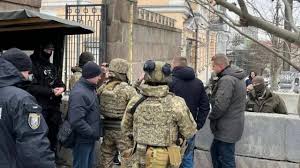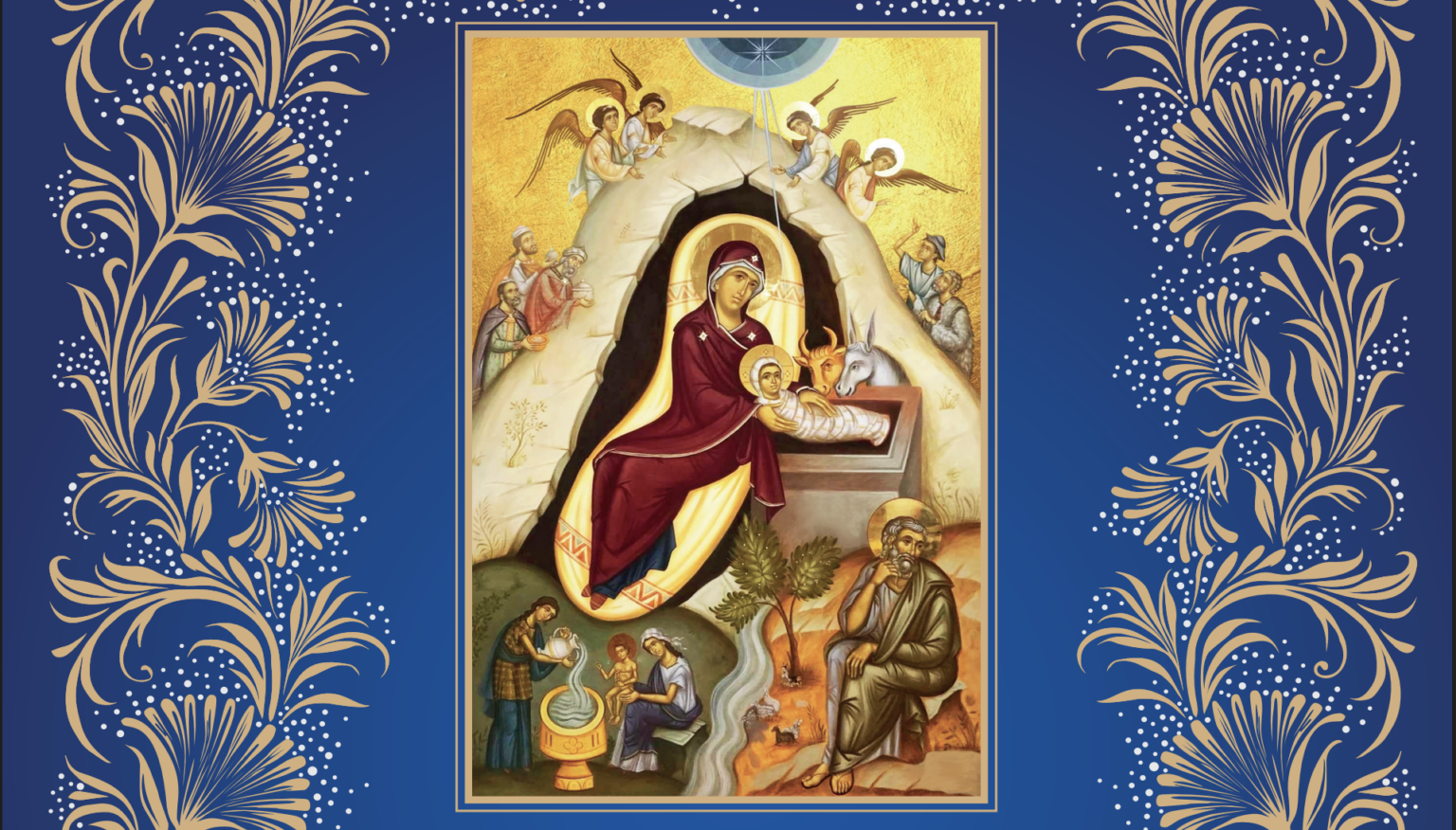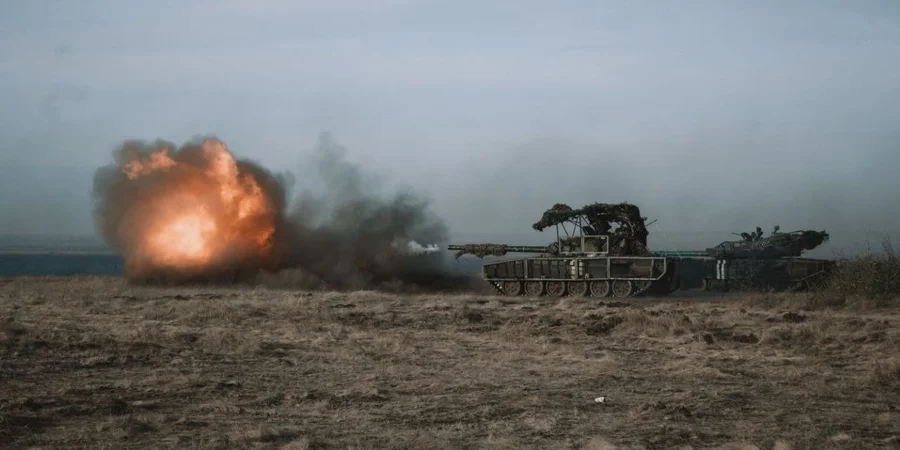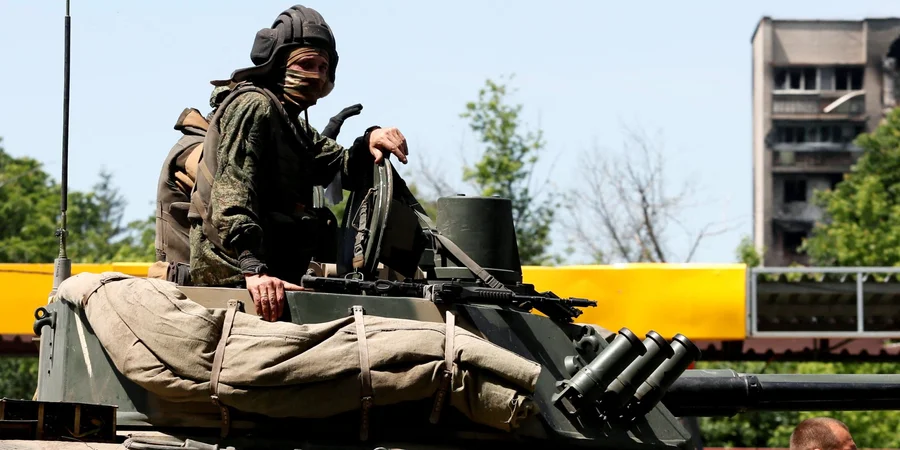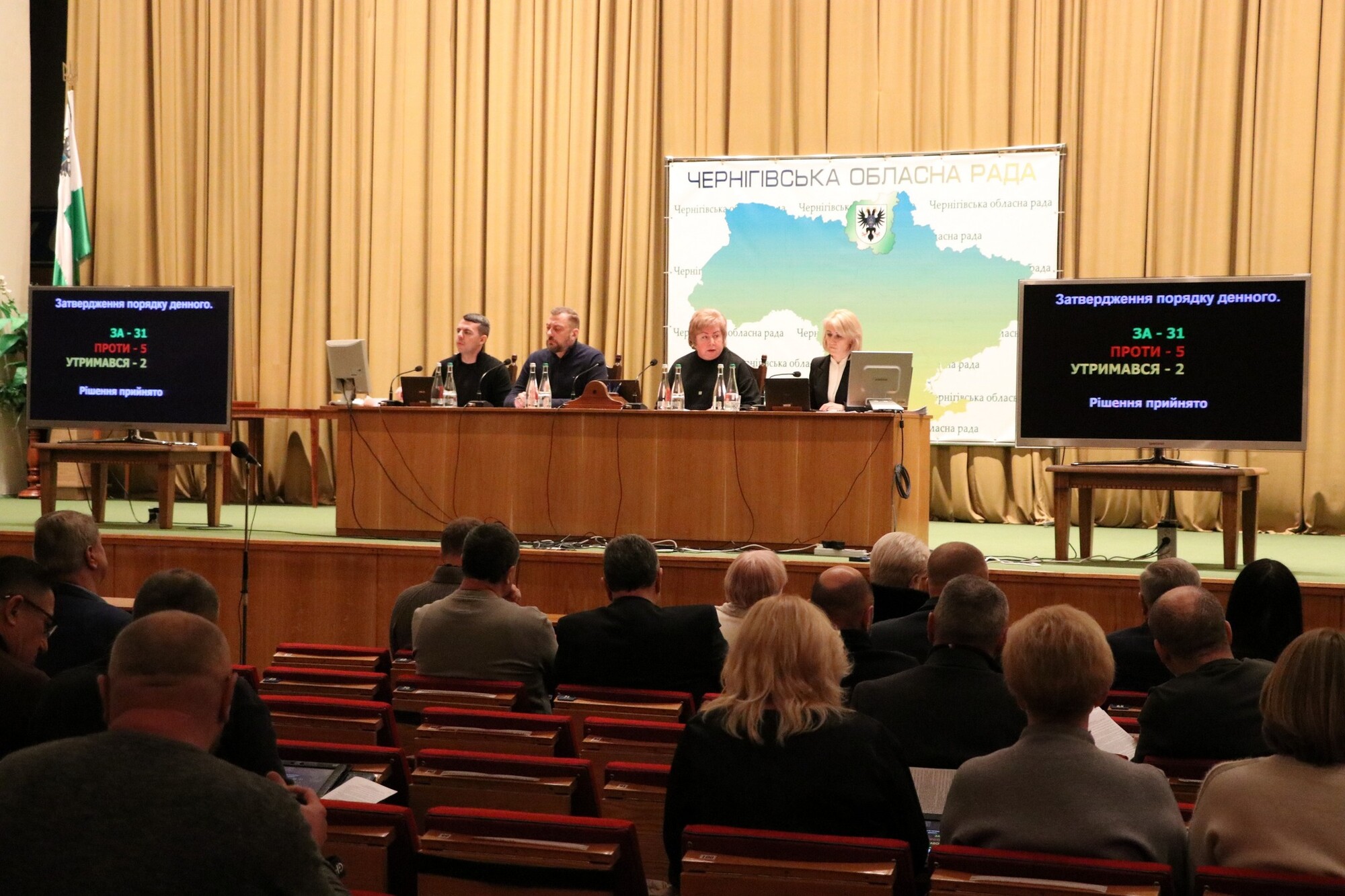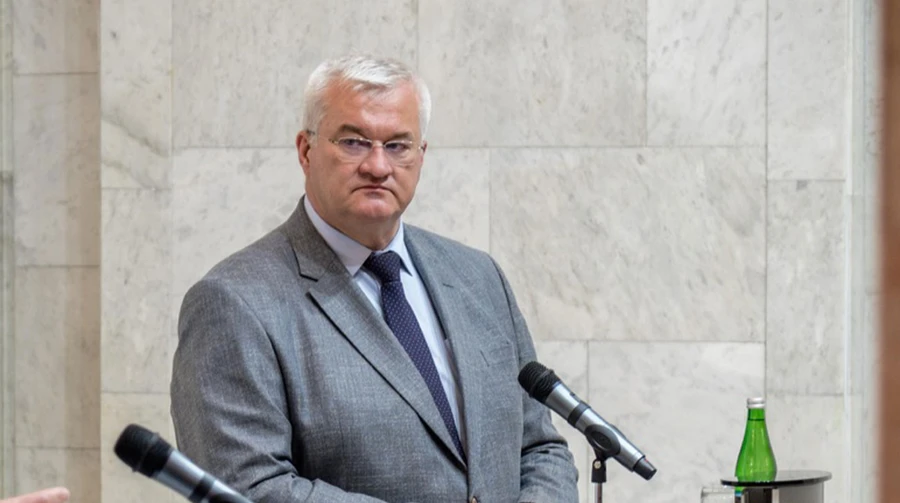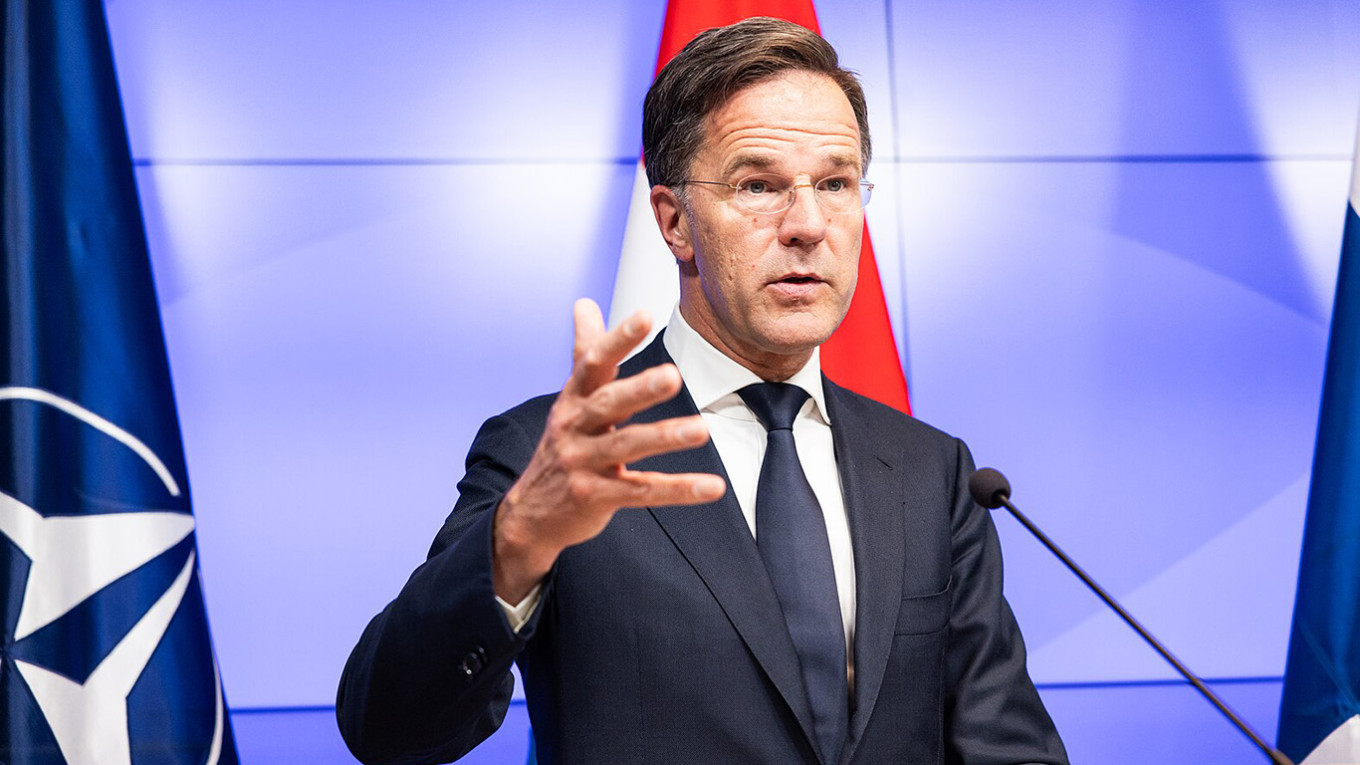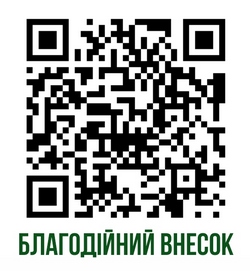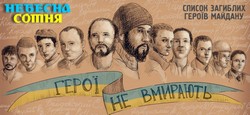EUROMAIDAN. Fall of the monument to Lenin in Kiev. (VIDEO)
8 December marked the third Sunday in a row of mass protest in Kiev. Opposition leaders billed the day as the "March of a Million", and all opposition parties claimed the turnout met the 1,000,000 mark.
According to Interfax-Ukraine, initial reports estimated the number "greatly exceed[s] 100,000 people," which matched police estimates. Associated Press correspondents on the ground and leading world media reported that 500,000 attended.
A survey of protesters conducted on the 7th and 8th found that 92% of those who came to Kiev from across Ukraine came on their own initiative, and 8% came as part of a political party or civil society organization. In terms of cause, 70% said they came to protest the police brutality of November 30, and 54% to protest in support of the European Union Association Agreement signing. Among their demands, 82% wanted detained protesters freed, 80% wanted the government to resign, and 75% want president Yanukovych to resign and for snap elections.
After the rally, a large group of Ukrainian protesters toppled the statue to Lenin in Kiev. Unlike the previous week, police officers on the scene withdrew without attempting to defend the monument. After the statue was taken down, the group shouted "Yanukovych, you'll be next!", and proceeded to smash the statue with a sledgehammer, decapitate it, and dismantle it for souvenirs; in place of the statue was planted a Ukrainian and red-and-black insurgency flag.
The Svoboda party took credit for the statue's destruction, with several party MPs, including Ihor Miroshnichenko, joining the crowd and taking part in the act.
Protesters traveling from Belarus who were en route to Kiev to support the protests were denied entry into the country at the border crossing near Chernihiv (where protests have been banned by the local police), while other reports saw traffic officers puncturing the tires of a bus carrying Belarusians. The same day, Party of Regions MP Oleh Tsarev requested to the Security Service and Foreign Ministry of Ukraine to deport or/and ban foreign organizers and political consultants, document scans of which he posted (and later removed) on his Facebook account. Among those named in the document notably included Andreas Umland, Stanislav Belkovsky, Taras Kuzio, Gleb Pavlovsky, and former Georgian president Mikheil Saakashvili, among others.
In the early morning of 9 December, some 730 Tiger and Leopard special forces, whose base of operations had previously been blocked by a motorcade of protesters in Vasylkiv (outside Kiev), broke through the cordone with support from Berkut troops to travel into the city.
The same day three metro stations in the center of the city – Teatralna, Khreschatyk and Maidan Nezalezhnosti were closed, and trains ran through them without stopping, after the Kiev police had received an anonymous bomb threat. Teatralna station was reopened late afternoon after police completed a fruitless search for possible explosives.
In the afternoon the BBC reported that Ukrainian police had begun dismantling protest camps in front of government buildings in Kiev. The protesters had been given until Tuesday (10 December) to leave. They were blockaded with cars, barricades and tents. According to the BBC, no clashes had been reported, but its reporter in Kiev, Steve Rosenberg, described the situation as "tense with various rumours circulating" and that priests were urging the police not to use force, while blessing them.
Meanwhile Interfax-Ukraine reported about more police movements and removal of protest barricades in Kiev. The Ministry of Internal Affairs issued a statement that "MPs have informed us that spade handles and other objects that could be used to cause bodily injuries have been distributed to the protesters at the opposition's self-defense posts". It also stated no action was being taken on Maidan Nezalezhnosti.
Opposition leader (of the Batkivshchyna party) Arseniy Yatsenyuk meanwhile complained about violence against demonstrators and stated "We do not beat policeman, we do not use force, we do not have any weapons and we do not have any special means". Fellow opposition leader Vitaly Klitschko concerted with that. Svoboda leader Oleh Tyahnybok warned that the government was planning to cut off electricity before an attack on the Euromaidan rallies in central Kiev "But we are preparing to use alternative ways to continue the existence of our camp". He also warned that Russian Federal Security Service (FSB) and police had arrived in Ukraine "With the aim of organizing mass disorder."
The website of opposition party Batkivshchyna went offline on 9 December following a police raid on their headquarters.
At their office on Turivska Street in Podil, "In the corridor we have people with machine guns, trying to break through into server rooms," said Ostap Semerak, a Batkivshchyna member, and that some troops climbed in through its windows.
It was described by witnesses that a special detachment of police in tactical gear destroyed all equipment in the offices, which also housed the newspaper INTV, Evening News and website Censor.Net.ua, who were raided in similar fashion shortly after. The server room was described as "a mess", and the offices themselves were ransacked, and security cameras were destroyed. An Associated Press reporter confirmed broken glass and smashed computers in the offices.
"The attackers did not introduce themselves or show any warrant," Censor.net editor Yuri Butusov told Reporters Without Borders. "They ordered all our staff to move away from their computers and to not use their mobile phones. Then they confiscated all our equipment. It was a criminal raid designed to eliminate a site that has been carrying information about the 'Euromaidan' movement."
A police spokeswoman initially denied police had conducted any operations at the address,however, the Interior Ministry later admitted the attack on the Batkivshchyna office was sanctioned by a court order for "two criminal cases", pertaining to alleged "fraud and abuse of office".
The police said they received a tip from a 'group of citizens' that "illegally seized computer equipment worth Hr 350,000" was on the premises, and that officials from the company 'abused their authority'. During the raid, computer equipment, database servers, and documents were confiscated as evidence. Shorter after, UDAR evacuated their offices on Horky Street, which in a press release stated was in relation to the raid on Batkivshchyna.
On December 10 at 1:00 am, the Ukrainian government cut off the power in the Kiev City State Administration used by protesters as a headquarters. It was reported that protesters feared aggressive measures would be taken. At the same time, 1:00 AM, public servants with their faces hidden and 100 riot police cleared the barricade at the cross section of the Hrushevskoho street and the Kriposnyj provulok in Kiev.
MP Andriy Shevchenko announced that police used their batons and kicked protesters. Hours later, 200 police advanced on the barricades on Lyuteranska and Bankova Street, with hundreds of protesters holding their ground, including Wladimir Klitschko. There, provocateurs penetrated into the ranks of the protesters, threatened with sticks, and used tear gas against the police, Hromadske.TV reported. During the clash over the barricaded encampment, there were about 12 to 15 injuries reported, including among police.
EU foreign policy and security High Representative Catherine Ashton held meetings in Ukraine on 10 and 11 December "to support a way out of the political crisis."
Accompanied by a small delegation, she met President Yanukovych, governmental officials, opposition figures, and representatives of civil society. President Yanukovych also had a roundtable meeting with all three former presidents Leonid Kravchuk, Leonid Kuchma, and Viktor Yushchenko. During the meeting, discussed were the release of Euromaidan detainees, the implementation of future EU-related reforms, and Kuchma alluded to the possible dismissal of Prime Minister Azarov. The opposition and organizers of Euromaidan were not participants in the rountable meeting.
During the meeting President Yanukovych stated, "I have said many times that the program of the Party of Regions since 1997 has the strategic aim of Ukraine's integration with Europe" and that he had ordered the government to work on minimizing the economic risks to Ukraine that the signing of the Association Agreement with the EU would entail, by the time of the EU-Ukraine summit scheduled for the spring of 2014.
It was also decided "that there will be a bilateral commission, with the European Union on the one side and Ukraine on the other" (with occasional consultations with Russia) to normalize relations between Ukraine and the EU.
European Commissioner for Enlargement and European Neighbourhood Policy Štefan Füle responded that the EU was "willing to maintain dialogue with Russia to convince it that an Ukraine–European Union Association Agreement will not harm its economic interests, but it will not hold tripartite negotiations on the matter".
He also added that the EU was willing to provide financial aid to Ukraine for implementation of the Association Agreement.
During the 10 December talks, President Yanukovych expressed the wish to renegotiate the terms for the signing of the Association Agreement "If the agreement were signed as it is, it would create a lot of difficulties in the farming industry". On 10 December Svoboda leader Oleh Tyahnybok claimed Euromaidan leaders had not been invited to the roundtable meeting (he referred to the talks as "a stage-managed comedy"); the same day former president Kravchuk expressed hope that Euromaidan leaders would attend the meetings on 11 December.
Wiki
According to Interfax-Ukraine, initial reports estimated the number "greatly exceed[s] 100,000 people," which matched police estimates. Associated Press correspondents on the ground and leading world media reported that 500,000 attended.
A survey of protesters conducted on the 7th and 8th found that 92% of those who came to Kiev from across Ukraine came on their own initiative, and 8% came as part of a political party or civil society organization. In terms of cause, 70% said they came to protest the police brutality of November 30, and 54% to protest in support of the European Union Association Agreement signing. Among their demands, 82% wanted detained protesters freed, 80% wanted the government to resign, and 75% want president Yanukovych to resign and for snap elections.
After the rally, a large group of Ukrainian protesters toppled the statue to Lenin in Kiev. Unlike the previous week, police officers on the scene withdrew without attempting to defend the monument. After the statue was taken down, the group shouted "Yanukovych, you'll be next!", and proceeded to smash the statue with a sledgehammer, decapitate it, and dismantle it for souvenirs; in place of the statue was planted a Ukrainian and red-and-black insurgency flag.
The Svoboda party took credit for the statue's destruction, with several party MPs, including Ihor Miroshnichenko, joining the crowd and taking part in the act.
Protesters traveling from Belarus who were en route to Kiev to support the protests were denied entry into the country at the border crossing near Chernihiv (where protests have been banned by the local police), while other reports saw traffic officers puncturing the tires of a bus carrying Belarusians. The same day, Party of Regions MP Oleh Tsarev requested to the Security Service and Foreign Ministry of Ukraine to deport or/and ban foreign organizers and political consultants, document scans of which he posted (and later removed) on his Facebook account. Among those named in the document notably included Andreas Umland, Stanislav Belkovsky, Taras Kuzio, Gleb Pavlovsky, and former Georgian president Mikheil Saakashvili, among others.
In the early morning of 9 December, some 730 Tiger and Leopard special forces, whose base of operations had previously been blocked by a motorcade of protesters in Vasylkiv (outside Kiev), broke through the cordone with support from Berkut troops to travel into the city.
The same day three metro stations in the center of the city – Teatralna, Khreschatyk and Maidan Nezalezhnosti were closed, and trains ran through them without stopping, after the Kiev police had received an anonymous bomb threat. Teatralna station was reopened late afternoon after police completed a fruitless search for possible explosives.
In the afternoon the BBC reported that Ukrainian police had begun dismantling protest camps in front of government buildings in Kiev. The protesters had been given until Tuesday (10 December) to leave. They were blockaded with cars, barricades and tents. According to the BBC, no clashes had been reported, but its reporter in Kiev, Steve Rosenberg, described the situation as "tense with various rumours circulating" and that priests were urging the police not to use force, while blessing them.
Meanwhile Interfax-Ukraine reported about more police movements and removal of protest barricades in Kiev. The Ministry of Internal Affairs issued a statement that "MPs have informed us that spade handles and other objects that could be used to cause bodily injuries have been distributed to the protesters at the opposition's self-defense posts". It also stated no action was being taken on Maidan Nezalezhnosti.
Opposition leader (of the Batkivshchyna party) Arseniy Yatsenyuk meanwhile complained about violence against demonstrators and stated "We do not beat policeman, we do not use force, we do not have any weapons and we do not have any special means". Fellow opposition leader Vitaly Klitschko concerted with that. Svoboda leader Oleh Tyahnybok warned that the government was planning to cut off electricity before an attack on the Euromaidan rallies in central Kiev "But we are preparing to use alternative ways to continue the existence of our camp". He also warned that Russian Federal Security Service (FSB) and police had arrived in Ukraine "With the aim of organizing mass disorder."
The website of opposition party Batkivshchyna went offline on 9 December following a police raid on their headquarters.
At their office on Turivska Street in Podil, "In the corridor we have people with machine guns, trying to break through into server rooms," said Ostap Semerak, a Batkivshchyna member, and that some troops climbed in through its windows.
It was described by witnesses that a special detachment of police in tactical gear destroyed all equipment in the offices, which also housed the newspaper INTV, Evening News and website Censor.Net.ua, who were raided in similar fashion shortly after. The server room was described as "a mess", and the offices themselves were ransacked, and security cameras were destroyed. An Associated Press reporter confirmed broken glass and smashed computers in the offices.
"The attackers did not introduce themselves or show any warrant," Censor.net editor Yuri Butusov told Reporters Without Borders. "They ordered all our staff to move away from their computers and to not use their mobile phones. Then they confiscated all our equipment. It was a criminal raid designed to eliminate a site that has been carrying information about the 'Euromaidan' movement."
A police spokeswoman initially denied police had conducted any operations at the address,however, the Interior Ministry later admitted the attack on the Batkivshchyna office was sanctioned by a court order for "two criminal cases", pertaining to alleged "fraud and abuse of office".
The police said they received a tip from a 'group of citizens' that "illegally seized computer equipment worth Hr 350,000" was on the premises, and that officials from the company 'abused their authority'. During the raid, computer equipment, database servers, and documents were confiscated as evidence. Shorter after, UDAR evacuated their offices on Horky Street, which in a press release stated was in relation to the raid on Batkivshchyna.
On December 10 at 1:00 am, the Ukrainian government cut off the power in the Kiev City State Administration used by protesters as a headquarters. It was reported that protesters feared aggressive measures would be taken. At the same time, 1:00 AM, public servants with their faces hidden and 100 riot police cleared the barricade at the cross section of the Hrushevskoho street and the Kriposnyj provulok in Kiev.
MP Andriy Shevchenko announced that police used their batons and kicked protesters. Hours later, 200 police advanced on the barricades on Lyuteranska and Bankova Street, with hundreds of protesters holding their ground, including Wladimir Klitschko. There, provocateurs penetrated into the ranks of the protesters, threatened with sticks, and used tear gas against the police, Hromadske.TV reported. During the clash over the barricaded encampment, there were about 12 to 15 injuries reported, including among police.
EU foreign policy and security High Representative Catherine Ashton held meetings in Ukraine on 10 and 11 December "to support a way out of the political crisis."
Accompanied by a small delegation, she met President Yanukovych, governmental officials, opposition figures, and representatives of civil society. President Yanukovych also had a roundtable meeting with all three former presidents Leonid Kravchuk, Leonid Kuchma, and Viktor Yushchenko. During the meeting, discussed were the release of Euromaidan detainees, the implementation of future EU-related reforms, and Kuchma alluded to the possible dismissal of Prime Minister Azarov. The opposition and organizers of Euromaidan were not participants in the rountable meeting.
During the meeting President Yanukovych stated, "I have said many times that the program of the Party of Regions since 1997 has the strategic aim of Ukraine's integration with Europe" and that he had ordered the government to work on minimizing the economic risks to Ukraine that the signing of the Association Agreement with the EU would entail, by the time of the EU-Ukraine summit scheduled for the spring of 2014.
It was also decided "that there will be a bilateral commission, with the European Union on the one side and Ukraine on the other" (with occasional consultations with Russia) to normalize relations between Ukraine and the EU.
European Commissioner for Enlargement and European Neighbourhood Policy Štefan Füle responded that the EU was "willing to maintain dialogue with Russia to convince it that an Ukraine–European Union Association Agreement will not harm its economic interests, but it will not hold tripartite negotiations on the matter".
He also added that the EU was willing to provide financial aid to Ukraine for implementation of the Association Agreement.
During the 10 December talks, President Yanukovych expressed the wish to renegotiate the terms for the signing of the Association Agreement "If the agreement were signed as it is, it would create a lot of difficulties in the farming industry". On 10 December Svoboda leader Oleh Tyahnybok claimed Euromaidan leaders had not been invited to the roundtable meeting (he referred to the talks as "a stage-managed comedy"); the same day former president Kravchuk expressed hope that Euromaidan leaders would attend the meetings on 11 December.
Wiki
|
Теґі:









